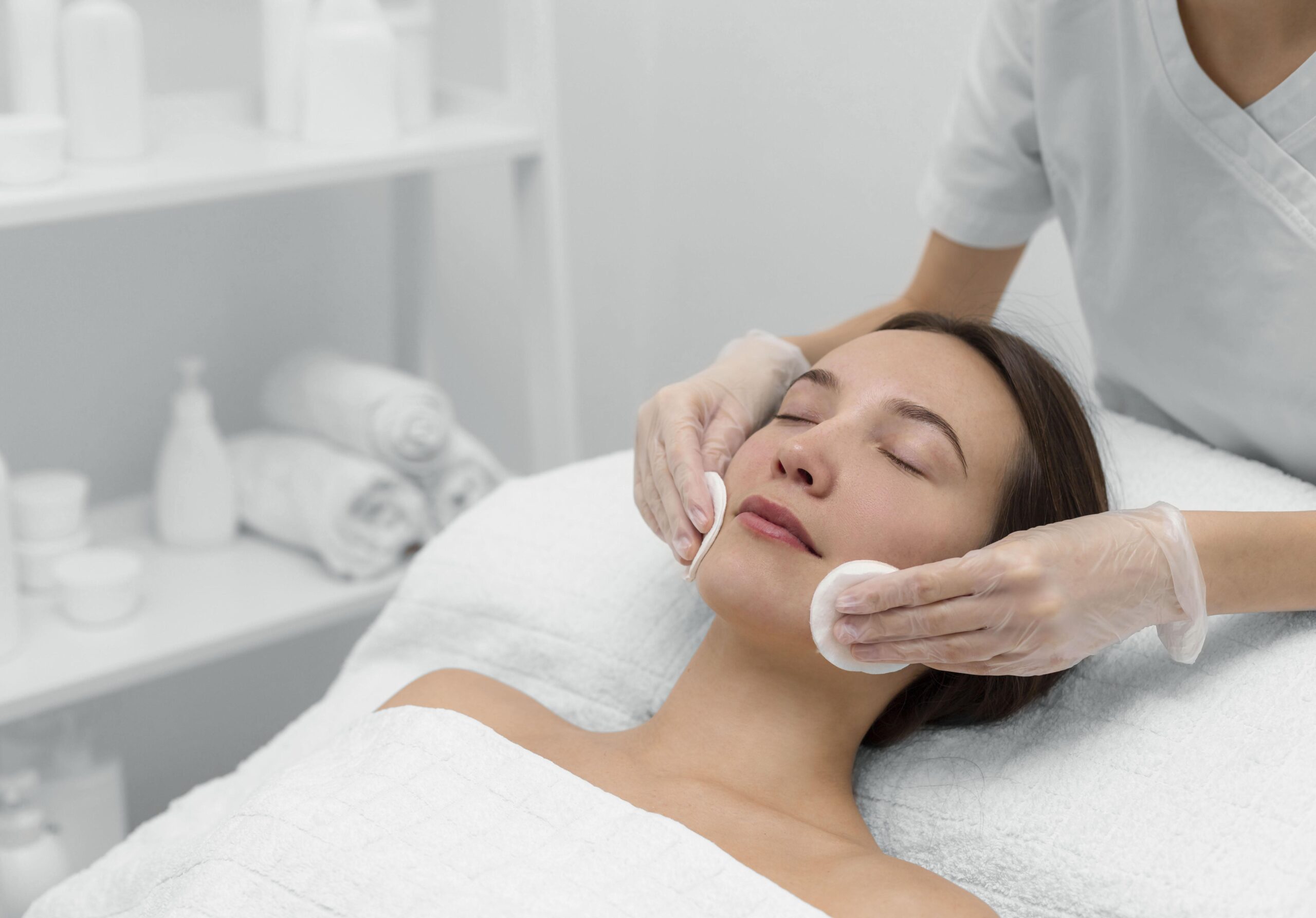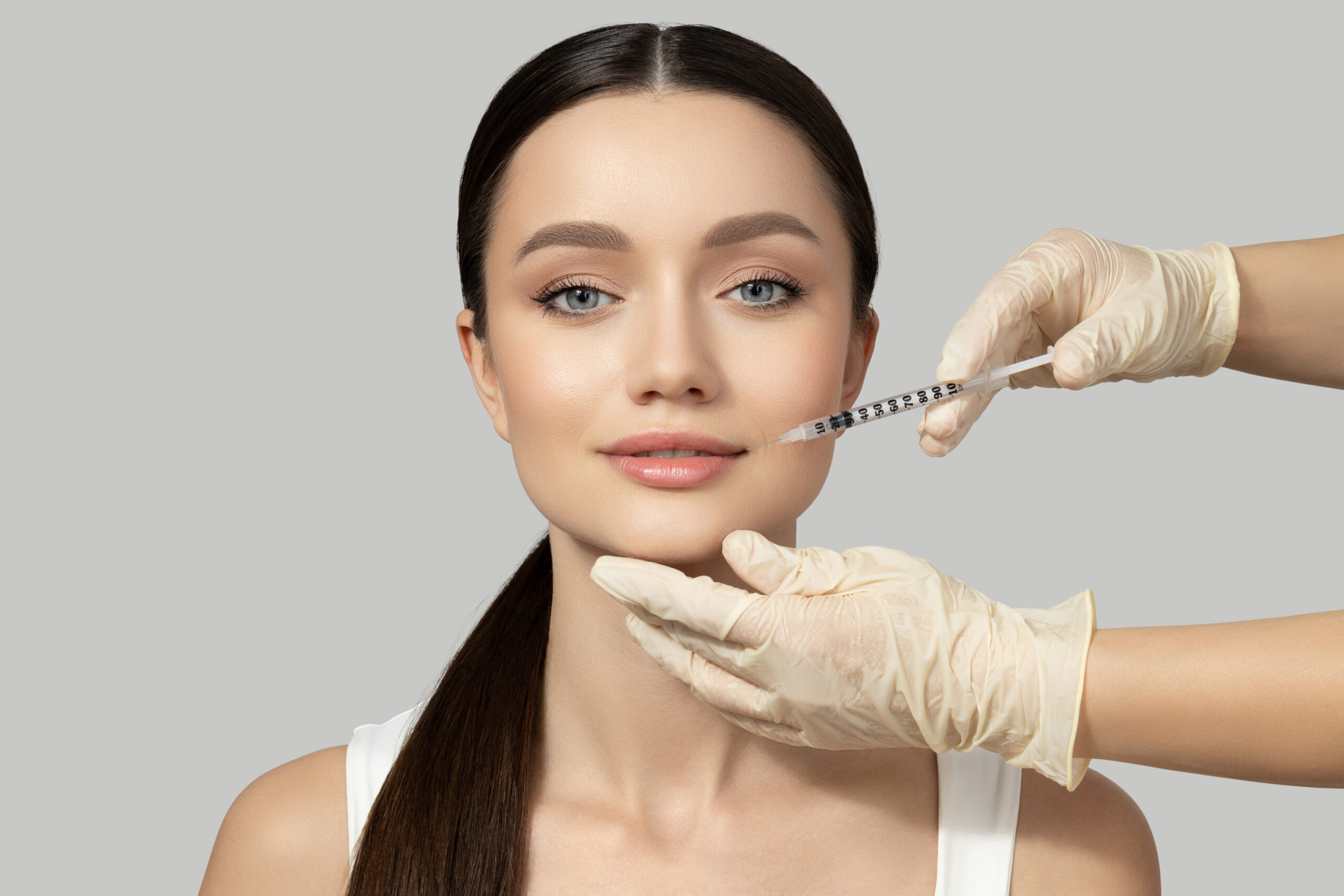
- By: auraskinandhaircosmeticclinic@gmail.com
- 23/08/2024
How to Treat and Prevent Common Skin Conditions (Acne, Rosacea, etc.) :Tips for managing and preventing various skin issues.
### **How to Treat and Prevent Common Skin Conditions**
Managing and preventing common skin conditions involves understanding their causes and implementing effective treatments and preventive measures. Here’s a guide to help you address conditions like acne, rosacea, eczema, and more.
—
### **1. Acne**
**Treatment:**
– **Cleansers:** Use gentle, non-comedogenic cleansers to remove excess oil and dirt. Look for ingredients like salicylic acid or benzoyl peroxide.
– **Topical Treatments:** Apply treatments containing retinoids, antibiotics, or acne-specific ingredients like benzoyl peroxide or salicylic acid.
– **Oral Medications:** For severe cases, consult a dermatologist about oral antibiotics or hormonal treatments.
**Prevention:**
– **Avoid Over-Washing:** Cleanse your face twice daily to avoid stripping the skin of natural oils.
– **Avoid Picking:** Resist the urge to pick or squeeze acne to prevent scarring and further inflammation.
– **Use Non-Comedogenic Products:** Choose skincare and makeup products labeled as non-comedogenic to prevent clogged pores.
—
### **2. Rosacea**
**Treatment:**
– **Gentle Skincare:** Use mild, fragrance-free cleansers and moisturizers to avoid irritation.
– **Topical Treatments:** Apply prescribed topical medications such as metronidazole or azelaic acid to reduce inflammation and redness.
– **Avoid Triggers:** Identify and avoid triggers such as spicy foods, alcohol, hot beverages, and extreme temperatures.
**Prevention:**
– **Sun Protection:** Apply broad-spectrum SPF 30 or higher daily to protect against UV rays, which can exacerbate rosacea.
– **Avoid Irritants:** Steer clear of harsh exfoliants, astringents, and products with alcohol or strong fragrances.
– **Manage Stress:** Practice stress-reducing techniques like mindfulness or exercise, as stress can trigger rosacea flare-ups.
—
### **3. Eczema (Atopic Dermatitis)**
**Treatment:**
– **Moisturizers:** Use thick, emollient-rich moisturizers to keep the skin hydrated and create a protective barrier.
– **Topical Steroids:** Apply prescribed topical steroids to reduce inflammation and itching during flare-ups.
– **Avoid Irritants:** Identify and avoid irritants such as certain soaps, detergents, and fabrics.
**Prevention:**
– **Regular Moisturization:** Keep the skin moisturized daily to prevent dryness and flare-ups.
– **Gentle Products:** Use hypoallergenic and fragrance-free skincare products to avoid irritation.
– **Wear Soft Fabrics:** Choose breathable, soft fabrics like cotton to minimize irritation.
—
### **4. Psoriasis**
**Treatment:**
– **Topical Treatments:** Use topical corticosteroids or vitamin D analogs to reduce inflammation and scaling.
– **Light Therapy:** Consider phototherapy, which uses UV light to slow down skin cell turnover.
– **Systemic Medications:** For severe cases, oral or injected systemic medications may be prescribed.
**Prevention:**
– **Moisturize Regularly:** Apply thick creams or ointments to keep the skin hydrated and reduce scaling.
– **Avoid Triggers:** Identify and avoid triggers such as stress, smoking, or certain medications.
– **Healthy Lifestyle:** Maintain a healthy diet, exercise regularly, and manage stress to support overall skin health.
—
### **5. Hyperpigmentation**
**Treatment:**
– **Topical Brighteners:** Use products containing ingredients like vitamin C, niacinamide, or hydroquinone to lighten dark spots.
– **Chemical Peels:** Consider chemical peels to exfoliate and reduce the appearance of pigmentation.
– **Laser Treatments:** Consult a dermatologist for laser treatments to target and reduce hyperpigmented areas.
**Prevention:**
– **Sun Protection:** Apply broad-spectrum sunscreen with SPF 30 or higher daily to prevent further darkening of spots.
– **Avoid Excess Sun Exposure:** Wear protective clothing and seek shade during peak sun hours.
– **Consistent Skincare:** Maintain a consistent skincare routine with products that target pigmentation.
—
### **6. Dry Skin**
**Treatment:**
– **Moisturizers:** Use rich, hydrating moisturizers containing ingredients like hyaluronic acid, ceramides, or glycerin.
– **Gentle Cleansers:** Choose mild, non-foaming cleansers to avoid stripping the skin of natural oils.
– **Avoid Hot Water:** Use lukewarm water for bathing and cleansing to prevent further drying.
**Prevention:**
– **Regular Hydration:** Apply moisturizer immediately after bathing to lock in moisture.
– **Humidifiers:** Use a humidifier in dry environments to maintain skin hydration.
– **Avoid Harsh Products:** Steer clear of products with alcohol, fragrances, or strong exfoliants that can irritate dry skin.
—
### **7. Sensitive Skin**
**Treatment:**
– **Soothing Products:** Use products with calming ingredients like chamomile, aloe vera, or calendula.
– **Patch Testing:** Test new products on a small area of skin before applying them to your face to avoid adverse reactions.
– **Avoid Irritants:** Choose fragrance-free and alcohol-free products to minimize irritation.
**Prevention:**
– **Gentle Skincare:** Use mild, non-irritating skincare products and avoid harsh ingredients.
– **Sun Protection:** Apply a gentle, mineral-based sunscreen to protect sensitive skin from UV damage.
– **Avoid Over-Exfoliating:** Limit exfoliation to prevent disrupting the skin barrier.
—
### **Summary**
Treating and preventing common skin conditions involves using appropriate treatments and adopting lifestyle and skincare practices tailored to each condition. By understanding your skin’s specific needs and implementing the right strategies, you can effectively manage and improve various skin issues. For persistent or severe conditions, consult a dermatologist for personalized advice and treatment options.

